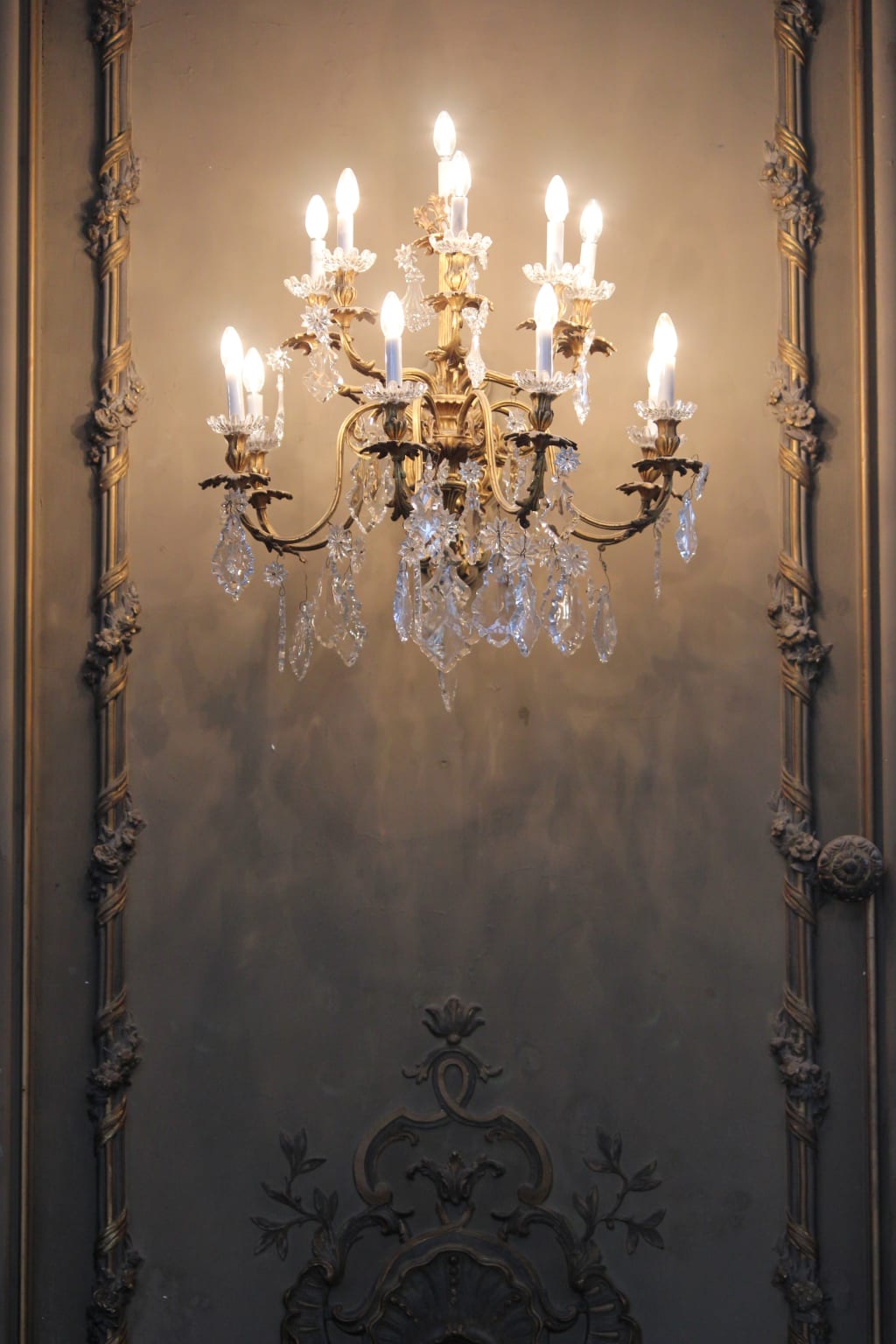
Everyone, for the most part, has at least heard the name of the most notorious queen, Marie Antoinette. If not her name, they've at least heard the infamous fable of the phrase: "Let them eat cake." For hardcore historians and fans like myself, it's a hard pill to swallow when your ill-informed teacher makes the mistake of asking the class "Who said let them eat cake?" and accepts the answer: "Marie Antoinette."
I promptly quit that class after such an event, just like I printed out a fact sheet for my high school science teacher who had a hard-on for all the historical "villains" who were born under Aries (like himself). When he falsely listed Julius Caesar and Napoleon Bonaparte as such, I did my research (which I already knew I didn't have to do), showing Julius Caesar was, in fact, a Cancer and Napoleon, a Leo (duh!).
Needless to say, both teachers did not like me (it's hard to be wrong).
So now, I present to you a list of myths I can't stand to hear about my girl Marie, being labeled as facts.
1) "Let Them Eat Cake!"
Sadly, history is often written by the victor, but in my opinion, the truth is bound to come to light eventually. In this case, the victor was, in fact, the Revolutionaries, whose arsenal of slander is endless. Many of their falsehoods hung around for centuries after, one of them being said that when Marie Antoinette was informed of the starvation ravaging the lower classes of her people, she muttered: "Let them eat cake."
*Quickly, for the uneducated, this is not cake in the sense of a frosted pastry presented to you on your birthday decked out with your name. It's a term used to describe the grease lining or "caking" of an oven...
This myth is mostly dashed by now, but there are many who still believe it. The myth stems from Jean-Jacques Rousseau's autobiography where he claims: "At length I remembered the last resort of a great princess who, when told that the peasants had no bread, replied: "Then let them eat brioches."
Rousseau's autobiography was written in 1765 (when Marie was nine-years-old and living in her native Austria) and published in 1782. It is claimed that the "autobiography" may be completely invented in itself by Rousseau, and therefore cannot be taken as factual. Never does he name the supposed princess.
The term is also said to have been in existence one hundred years prior to Marie Antoinette, first uttered by the wife of Louis XIV, a Spanish princess. More evidence of this exists that this would have been completely out of Antoinette's character, as persisted by biographer Antonia Fraser, who cites:
"[Let them eat cake] was said 100 years before her by Marie-Thérèse, the wife of Louis XIV. It was a callous and ignorant statement and she, Marie Antoinette, was neither."
I couldn't have said it better myself.
2) She wasn't all that smart.
Far too often, the last great queen of France is painted as a bumbling airhead, spinning around her little pretend village in a towering hairdo and over done face paint. The reality is a little different.
Some of us Americans can thank Marie Antoinette in pushing her husband Louis XIV to involve France in the American Revolution. Without their support, we may never have been successful in winning the war against the British. She further became instrumental by encouraging Russia and Austria to support the effort of the colonies. For you feminists out there, this led to Antoinette nominating Charles Alexandre de Calonne as Controller-General of Finances and Minister of the Royal Household, making the Queen's own influence stronger than ever in the French government.
When her husband, Louis XVI, began to suffer from depression, he turned to her for political advice. Despite several cutbacks to the royal household, the national debt did not improve, forcing the royal couple to call for the Assembly of Notables. However, the assembly could never quite agree and ultimately failed as a result of them consistently defying the king. This failure, sadly, was blamed entirely on the Queen.
3) She's to blame for the king's... er... dysfunction.
In the early years of their marriage, sex was apparently the only thing not on the menu for Louis XIV. As a result, Antoinette became the focal point for why the marriage hadn't been consummated, dooming her from the start. It is widely believed that Louis suffered from phimosis, which the King finally solved by circumcision, though historians can't seem to agree on this claim. When Antoinette's brother, Joseph arrived in April of 1777, he reported to their mother, the Empress of Austria, that no real issue existed between the couple other than Antoinette's disinterest and Louis's laziness, saying they were nothing but "complete blunderers."
4) She slept with women... and all of France.
As her popularity began to decline, it was fueled by outrageous pamphlets claiming to describe her intimate relationships with men and women, from Thomas Jefferson, to her best friends the Princesse de Lamballe and the Duchesse de Polignac, her grandfather-in-law Louis XV, and worse, her own children. All these claims are, of course, ridiculously and grossly false.
5) She had an affair with Swedish Count Axel Fersen:
There is no conclusive evidence to show that Count Fersen and Antoinette were involved physically, though there is no doubt that they were close friends. The rumor sparked when Axel was invited to join Antoinette's private circle, but that is hardly reason enough to suggest they were lovers. Though many of her most famous biographers believe strongly that theirs was a romantic affair, nothing exists today to prove such a case other than speculation and romanticism.
6) Frivolity.
There is no doubt that Antoinette loved to spend in her prime. Let's face it, this was probably shop therapy as a result to her being young, homesick, and feeling the pressure of giving birth to an heir. But the country was already sunk into debt before Marie Antoinette even stepped foot on French soil. She just happened to be easy prey for the Revolution and an obvious target for the blame game. In fact, as she grew older, she challenged the court of Versailles by turning it upside down. Doing away with full painted faces, full panniers and heavy gowns, and towering hair-dos, coming away with simpler gowns, hairstyles, and adopting a simpler existence at court and her country retreats, a gesture that made the older generation of privileged society snub their noses at her, while the lower classes of France criticized her for not looking the part of a "Queen," while also giving her the title "Madame Deficit" for her extravagance.
So what is a girl to do? Let's think of it in a modern sense without the frills of third wave feminism. You're a young wife, married to a seemingly loyal, sweet but awkward, dud. Your aim is to have children, but your husband can't perform. You don't know what to do so you spend money to fill a depressing void. You're (for the most part) the toast of the town. To the world, you have it all. Then you become demonized overnight, a victim of jealous friends or on-lookers, your name and reputation are dragged through the mud, and everyone seems to believe every negative, terrible, most outrageous thing about you. No amount of truth or good deed can save you. Suddenly, you lose everything...
That's the essence of Marie Antoinette's story, I believe. If you have something the world wants, they'll pull you down and destroy you if they can just to take it from you. It's not about queens, kings, or peasants...
It's much more human than that.
About the Creator
A. Lello
Retired flapper, writer, student, MILSO, and fur mama. A champion of the truth, the underdog and executioner of the deceitful.






Comments
There are no comments for this story
Be the first to respond and start the conversation.